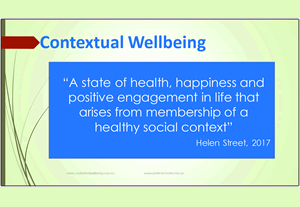 NORTHERN Bay College will join Geelong Grammar and the University of Melbourne in a study measuring and refining use of positive psychology in Education.
NORTHERN Bay College will join Geelong Grammar and the University of Melbourne in a study measuring and refining use of positive psychology in Education.
Groups of year 10 students will register feelings of wellbeing via iPod touch devices and have cortisol levels measured via saliva as part of the four-year project underpinned by Australian Research Council funding.
Geelong Grammar has led the world in incorporating positive education into its curriculum, and the research starting next year will examine how the teaching can improve mental health and stimulate learning.
Northern Bay principal Fred Clarke said three of the college’s teachers had trained with Geelong Grammar but implementation had remained out of reach.
Mr Clarke welcomed introduction of the curriculum and study as a natural fit.
“What we’re trying to do … is really trying to build up that sense of hope. Our postcode shouldn’t be our destiny. It’s a great place to be and let’s be really positive about life and that’s what this program is really embracing,” he said.
“We’re really excited to be part of it to see what we’re going to learn from it and introduce.”
Two groups of 40 students will be studied, one control group under the regular curriculum and the other under a positive psychology curriculum.
Melbourne University’s applied positive psychology program director Dianne Vella-Brodrick said the study would systematically measure students’ emotional states and feelings of wellbeing.
“This gives us an opportunity to see in day-to-day functioning whether they actually are using some of the strategies being delivered in their positive education program,” Dr Vella-Brodrick said.
“And it’s not just about seeing whether they are using them or not using them, but what are some of the enablers and some of the barriers to being able to use some of the strategies that they are being taught.
“It is difficult to ascertain what the active ingredient of the program is, but because we are doing this experience sampling, running focus groups, we’re more likely to be able to pinpoint what the active ingredients are.”
She said the study had the blessing of the father of positive psychology, Martin Seligman, of the University of Pennsylvania, who oversaw its introduction at Geelong Grammar.
Grammar principal Stephen Meek, who spoke at a positive education summit at the British Prime Minister’s residence last month, hailed the broader implications of the study.
“I think that it is incredibly exciting for the future of education worldwide,” Mr Meek said.


